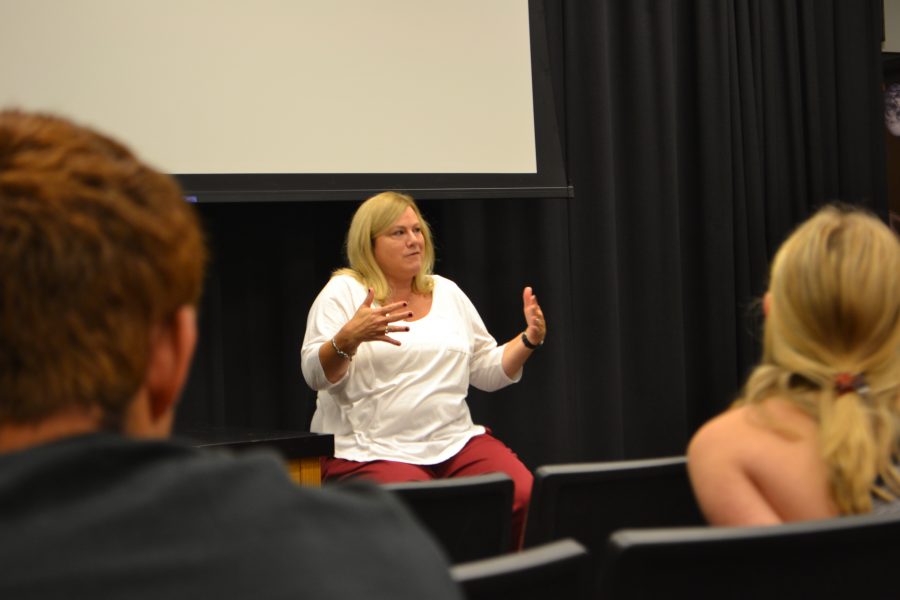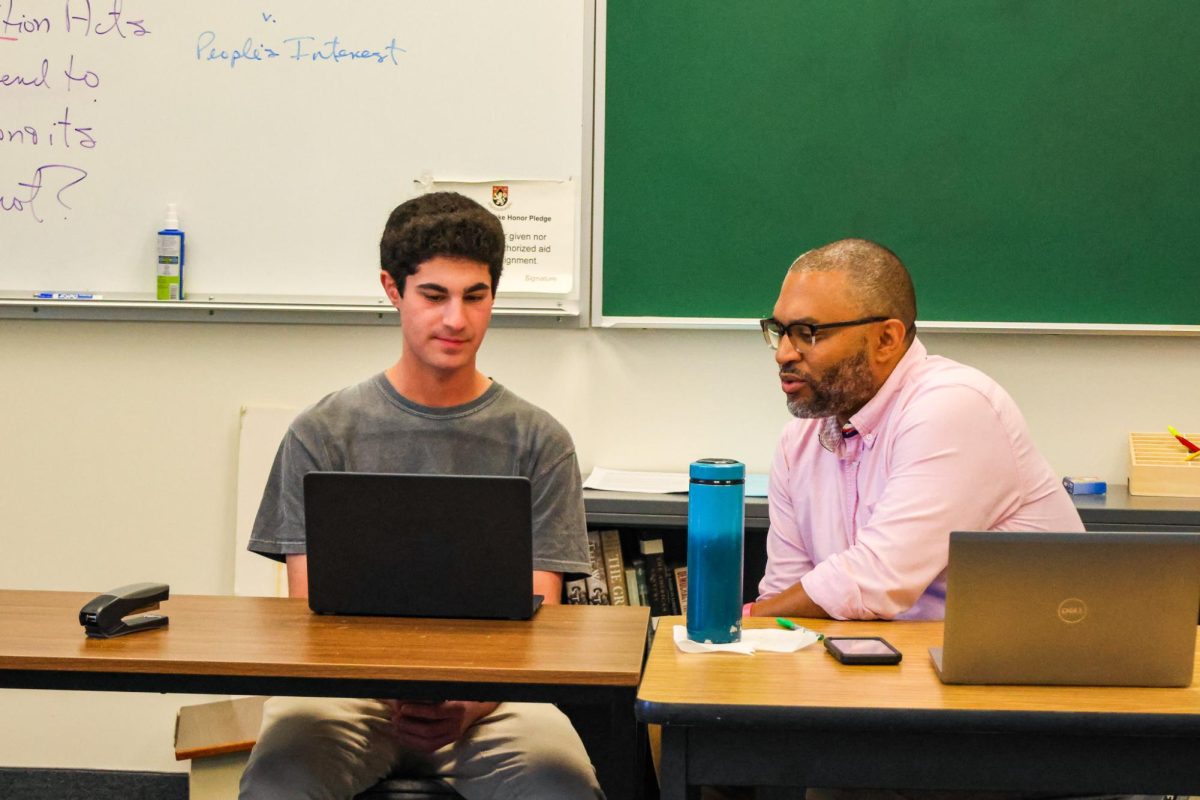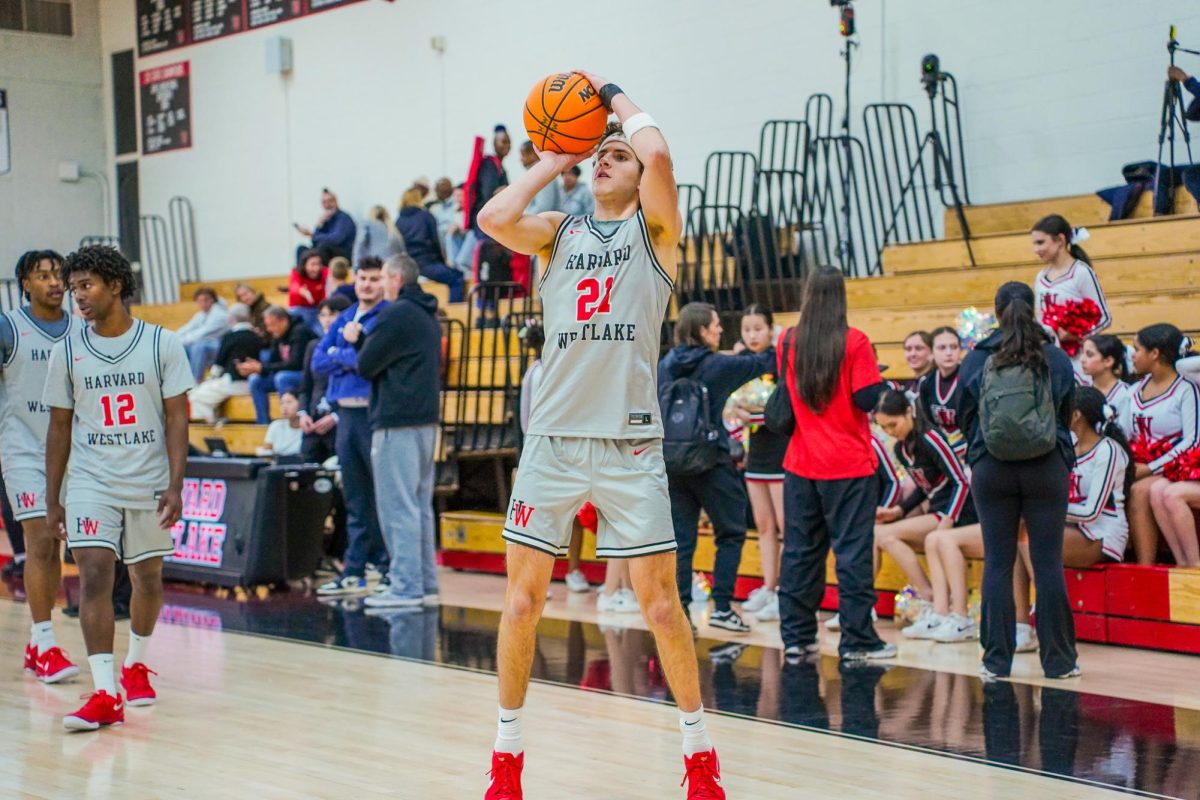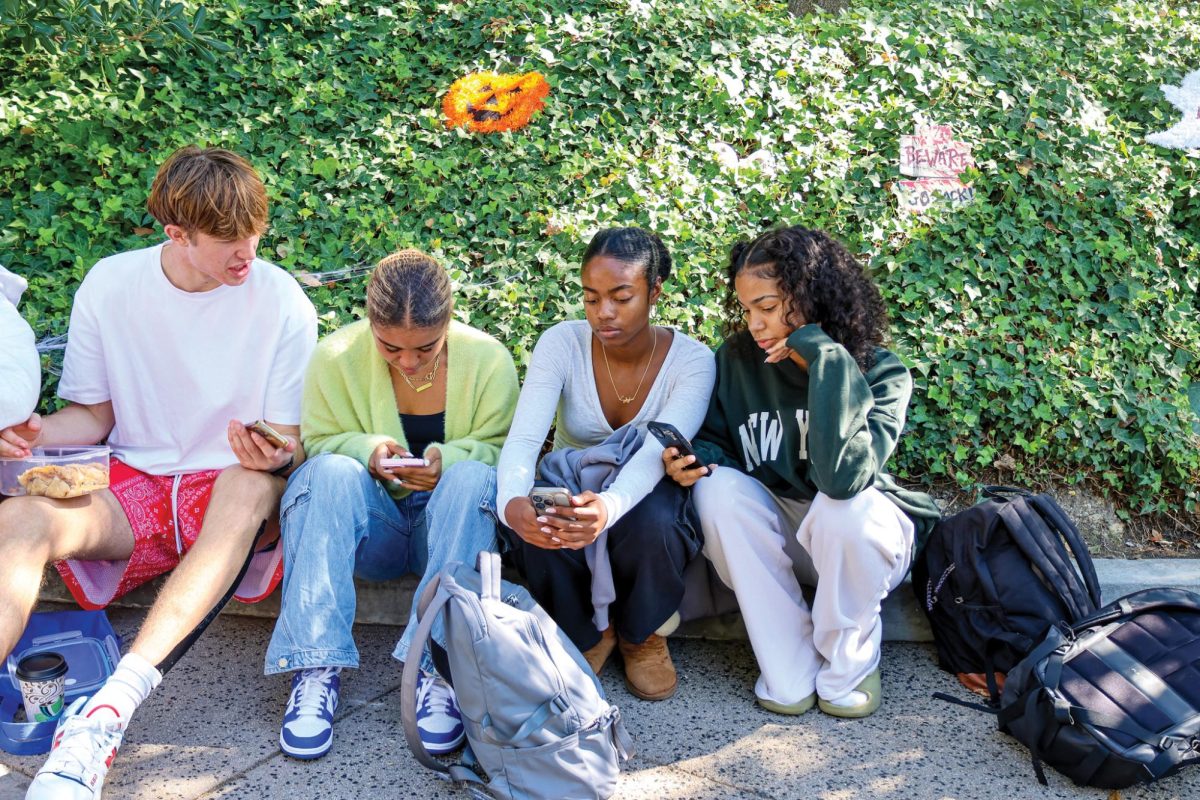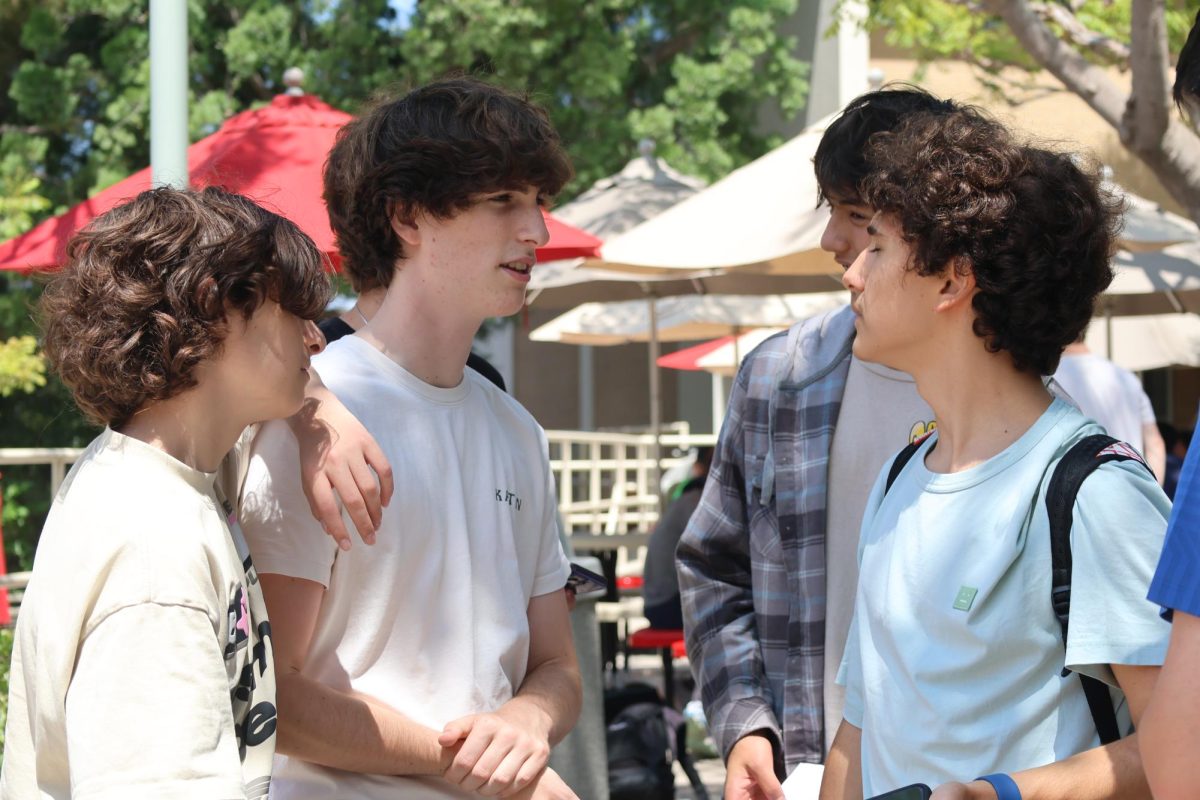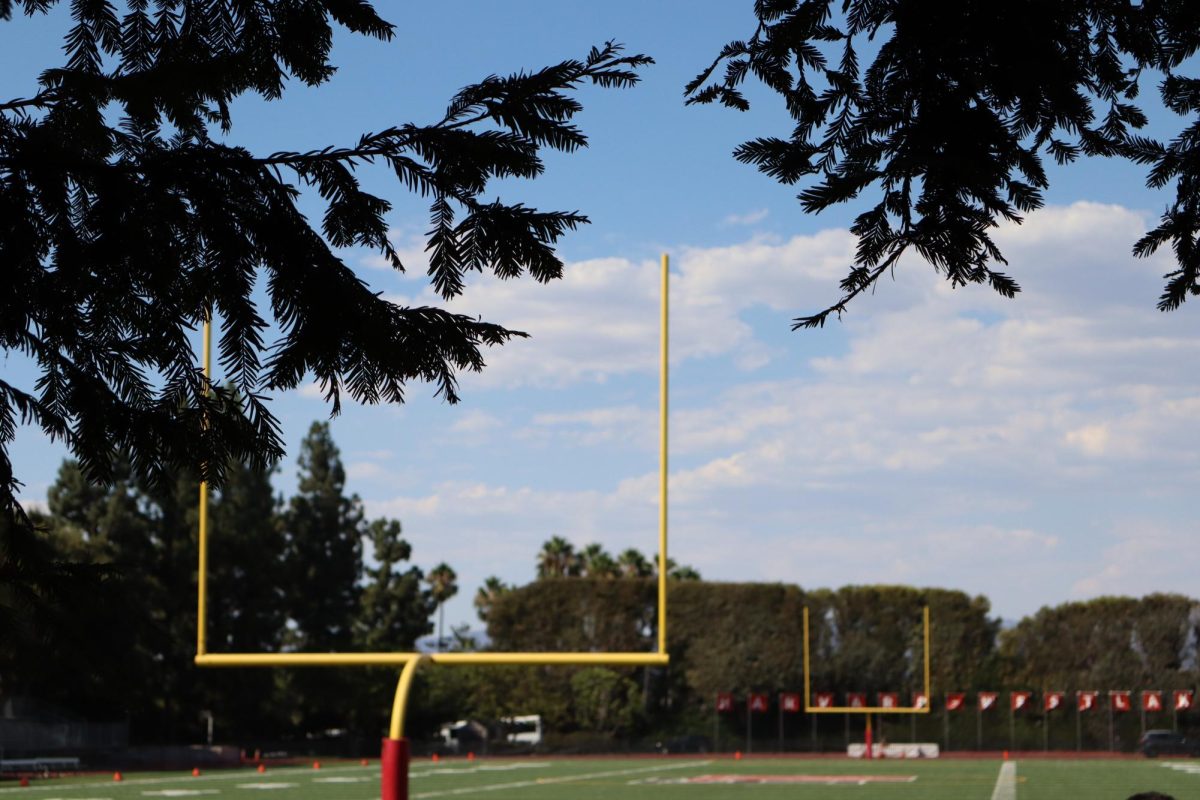Following last week’s all-school assembly, in which advocacy clubs screened a video highlighting instances of racist, sexist and homophobic language on campus, faculty and students continued their discussion of microaggressions in Ahmanson Lecture Hall during Activities Nov. 7.
Student leaders from the Latino-American Student Organization, Black Leadership Awareness and Culture Club, La Femme and Gender-Sexuality Awareness Club attended the meeting.
Assistant to the Head of Upper School Michelle Bracken led the meeting by asking questions about the school community’s reactions to the video, which presented racist, sexist and homophobic quotes overheard on campus.
“Frankly, it’s not an easy issue to deal with. It’s hard when we hold a mirror up to our community and recognize that there are flaws and that we ourselves need to think about the fact that we play a part in this. Sometimes, that leads to uncomfortable laughter or efforts to distance ourselves from the issue,” Dean Celso Cardenas said.
Proposed solutions to address microaggressions, included a school-wide campaign to encourage members of the school community to become comfortable with conversations about gender, race or sexuality.
“I think that educating students from a young age is one of the first and most important steps to stopping offensive rhetoric and behavior. People everywhere, but especially kids, need to know that there’s a world outside of their own,” La Femme leader Sohni Kaur ’17 said. “If students are exposed to different cultures and different people, such as from literature or history lessons, from a young age, they’ll be more perceptive to hearing other people’s opinions and seriously considering them.”
Another topic of discussion was the responsibility of the individual to be an “upstander,” as opposed to a “bystander.”
“It is our job as individuals to address others when others are using hurtful language. If we continue to shrug the comments off, we are only adding to the problem,” Ashley Starr ’18 said. “Today’s meeting really highlighted the importance of using our voices to put an end to the problem on our campus.”
Having more members of the school community being upstanders will also empower students, Cardenas said.
“I don’t think it’s the responsibility of the targets of microaggressions to be the only ones that speak out against these incidents,” Cardenas said. “As we have more people that act as more than just bystanders, then individuals can feel a lot more empowered to say ‘Hey, I don’t think that’s funny. That’s not cool.”
The advocacy clubs that produced the video also plan to pose a challenge to the school community to speak out against offensive language. In conjunction with the challenge, they will produce another video to put a face to the microaggressions.



























